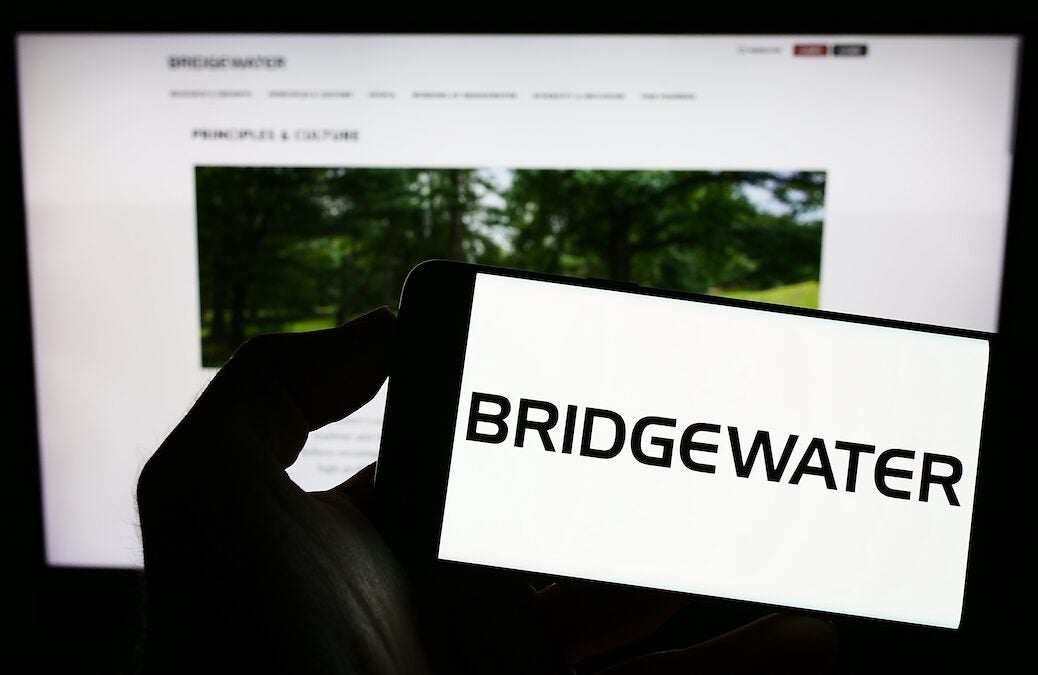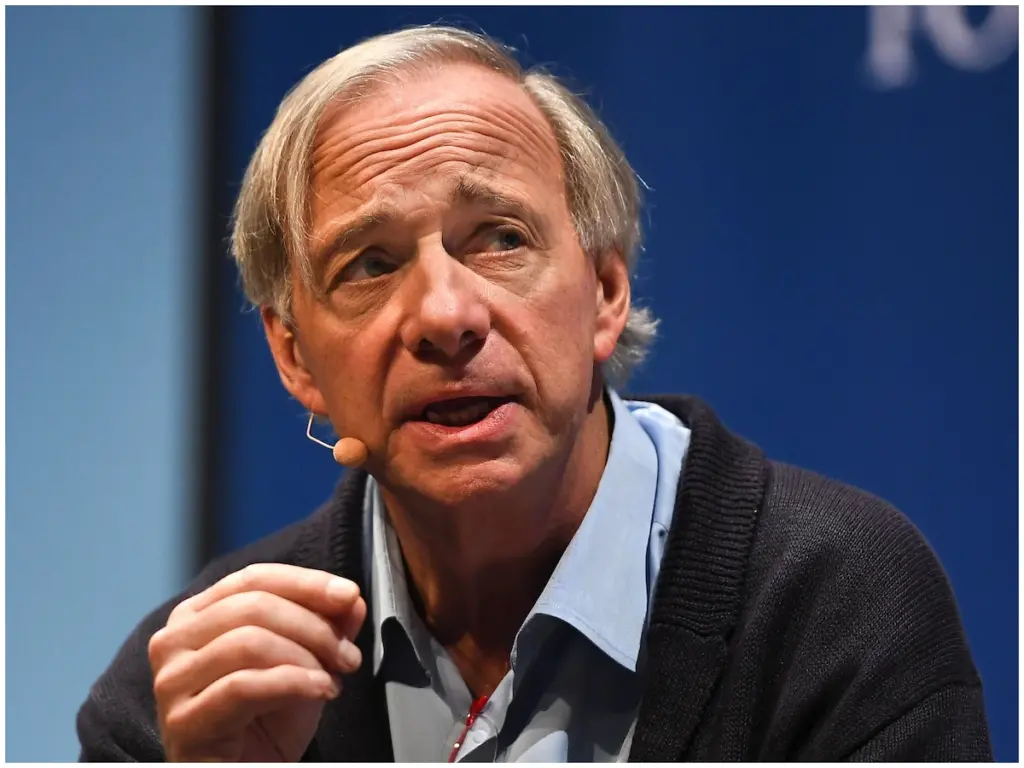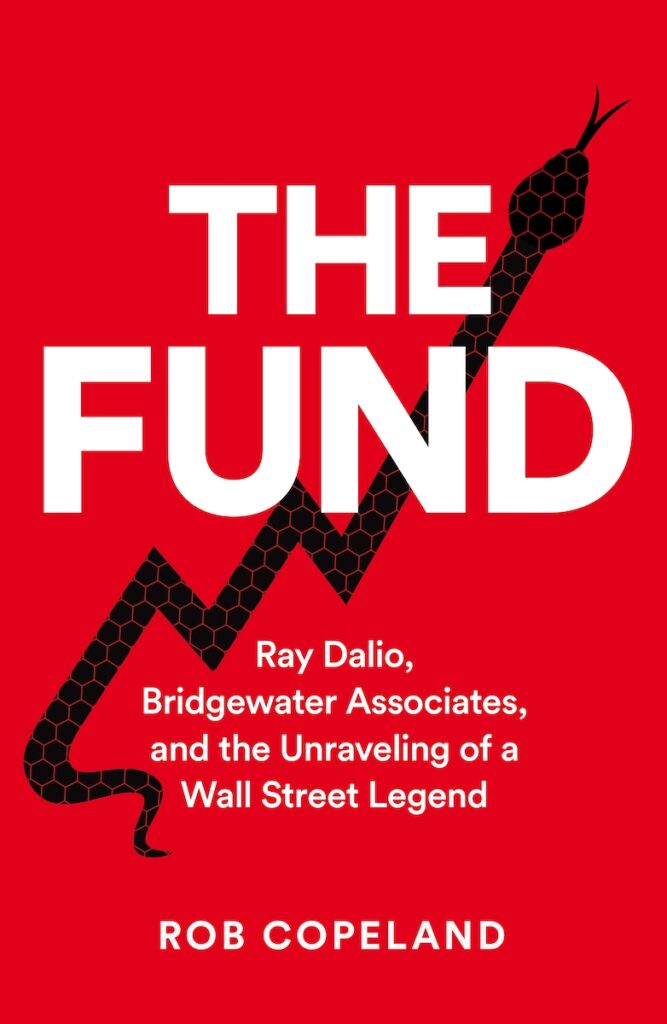
What if the investment secret at the heart of Ray Dalio’s Bridgewater Associates, the world’s largest hedge fund firm, is that… there isn’t one?
That is the premise of a revelatory, not to say contentious, new exposé by New York Times reporter, Rob Copeland, currently sending tremours through the placid Connecticut town of Westport, home to Bridgewater HQ.
This book turns much of what you think about hedge funds on its head. For one thing, given the high-rolling nature of the industry, you might imagine the world’s largest hedge fund to be based in a Manhattan skyscraper, not semi-rural backcountry — but office locale is the least of this book’s eyebrow-raisers.
[See also: Don’t write off hedge fund ‘sharks and ChatGPT busters’]
‘Ray Dalio does not want you to read this book,’ begins the author’s note, describing how Bridgewater’s founder rejected interview requests.
That may not surprise you, given much of what follows. But, to give Dalio his due, for all of the weirdness at Bridgewater (which we will come to) and question marks over its investment process, one point is clear: it would be unfair to view him as anything other than a titanic figure in the history of hedge funds.

Bridgewater: a $160bn business
Ray Dalio founded Bridgewater in 1975, a few years after his mother had died of a heart attack when he was only 19. He grew the firm into a huge operation, managing $160bn at its peak and making billions for investors.
At first, as with the hedge fund industry as a whole, these investors were mainly wealthy individuals and families, before the client base shifted more to pensions, endowments and sovereign wealth funds after the financial crisis.
According to LCH research, Bridgewater has made $58.4bn for investors since inception, second only to Ken Griffin’s Citadel. A lot of investors, then, will not be complaining, although critics would note, not unjustifiably, that the gain covers almost five decades, during which there have been long periods of underperformance.
Dalio, who has compared himself to the Dalai Lama, is not your average hedge fund manager. His philosophy of “radical transparency” governs all at Bridgewater, even after he stepped down last year, where all staff meetings and calls are recorded.
Bridgewater sounds more like a cult than a hedge fund, and it sounds like an intimidating place. Security was so tight that a former FBI official was in charge, supported by several ex-agency colleagues.
[See also: How ‘intro-fluencers’ are looking to profit from family offices]
The ‘Principles’ of the fund
Feedback is given and performance is judged across the firm through company-wide votes. Dalio’s ‘Principles’ are central to this process (‘pain plus reflection equals progress’ is one example) and staff are encouraged to incorporate them into their decision-making. Every action must be justified by the all-powerful principles.
‘Staffers who left their desks even briefly would return to sticky notes left on their computer monitors admonishing them for failing to put up a screen saver,’ Copeland writes.
Jim Comey, the former director of the FBI sacked by former US president Donald Trump, had it a little easier during his time as Bridgewater general counsel between 2010 and 2013. ‘He was soon citing Principles with such frequency that Dalio told the whole firm his new general counsel was a ‘chirper,’ one of the worst criticisms the Bridgewater founder could dole out,’ according to the book.
Being sacked by Trump sounds like light relief in comparison.
The Principles first became public knowledge outside the four walls of the firm when a finance blog published excerpts to general mockery in 2010. Dalio spoke to the Wall Street Journal to lay out his philosophy, the start of a 13-year campaign to make the wider world understand — or even find utility in — his firm’s unique approach.
With muted success, so far. His eagerness to be the subject of a Walter Isaacson biography, just like his hero, Steve Jobs (and more recently, Elon Musk) fell flat and ended up writing his own.

How does Bridgewater make its money?
The heart of Copeland’s book, other than Dalio’s character and the firm’s unique culture, focuses on investment: how does Bridgewater make its money?
Dalio has spoken about Bridgewater’s ‘investment engine’ made up of hundreds of quant signals that form trades. But the rest of the hedge fund industry has often wondered how much of the machine exists.
Rivals go digging. Belying the performative niceties onstage at industry conferences, the hedge fund industry is driven by ferocious competition, an all-out war of trades, strategies and talent.
Witness quicksilver Bill Ackman, founder of New York-based Pershing Square Capital Management, interviewing Dalio at a charity event in 2015. After trying to winkle secrets about the Bridgewater investment process out of its founder, he told the audience it had been ‘one of the most interesting conversations I’ve ever had.’
But later, offstage, he vented: ‘What was he even talking about?’
David Einhorn, the hedge fund manager who founded Greenlight Capital and best known for calling the Enron fraud, investigates whether the firm is a fraud.
[See also: Reading room: Technofeudalism and bank groupthink – the summer’s new book releases]
There is no fraud. What there seems to be, according to the book’s rigorous reporting, is a disconnect between the idea of a ‘machine’ driving investment decisions quantitively, based on automatically derived signals, and the reality: a small inner team making the final calls.
The ‘circle of trust,’ writes Copeland, is ‘no more than about 10 people… this band of almost all men were chosen not only on merit but on loyalty… It was more an unbroken ring surrounding one stand-alone point in the centre: Dalio.’
Bridgewater has rejected the book’s claims, but it raises myriad questions for the $130bn firm. Though it remains the world’s largest hedge fund manager, it has posted weaker gains since the pandemic.
Will its unique system of radical transparency survive post-Dalio? More importantly, should it?
Will Wainewright runs Alternative Fund Insight, a hedge fund research and analysis platform
The Fund: Ray Dalio, Bridgewater Associates, and the Unraveling of a Wall Street Legend by Rob Copeland (Pan Macmillan, £22)







